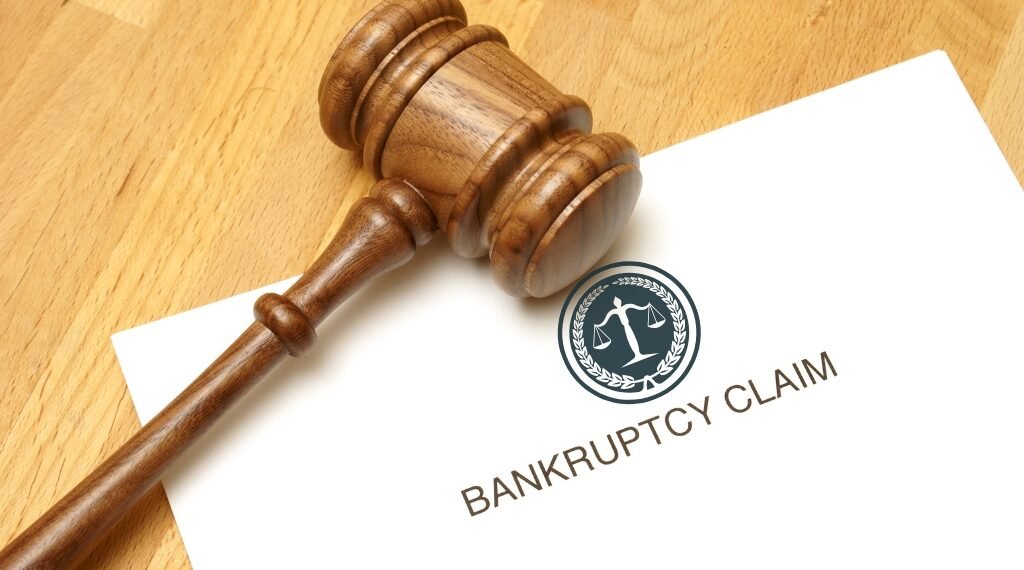Find out what law firm represented The Weinstein Company in bankruptcy and how, legally, was the case processed.
The fall of The Weinstein Company was one of the major moments that happened within the entertainment industry, but it stirred a lot of awareness right from the public for several reasons. First, it wasn’t the fall of a media empire that captured headlines; instead, it was about a broader cultural reckoning into sexual harassment and misconduct in Hollywood. But behind the headlines lay some complex and protracted legal battles, including the company’s eventual bankruptcy. Any guesses on what law firm represented The Weinstein Company in bankruptcy?
OK, I’m going to date myself in this article, but I’m going to take that one step further at the legal aspects of corporate bankruptcies, especially ones of this high profile. Along the way, I will sprinkle some ideas and experiences from working in the legal world, trying to keep it not too dry apart from that, as painless as possible. So, let’s get underway!
Table of Contents
The Fall of Weinstein Company: A Brief Overview
Before we delve into the details of the law firm, let’s go back in time and see what happened prior to the bankruptcy filing in the first place. The Weinstein Company was once a powerhouse in the entertainment world cofounded by infamous Harvey Weinstein and his brother Bob in 2005. Major films it produced and distributed included The King’s Speech, Django Unchained, and Silver Linings Playbook. It all came crashing down in 2017.
The revelations in October 2017 of sexual abuse against the then-world-renowned Hollywood and film producer Harvey Weinstein saw a wave of lawsuits, criminal investigations, and public outrage. The #MeToo movement, therefore, enjoyed significant momentum with this scandal on its head. The Weinstein Company was, thus, not tenable. The financial backers took flight, and its reputation could never be cured.
By March 2018, the company was forced to declare bankruptcy. And this is where it gets legally complicated—and interesting.
The law firm that represented The Weinstein Company in bankruptcy
Now, let’s get to the heart of the matter: What law firm represented The Weinstein Company in bankruptcy?
The answer is the illustrious Cravath, Swaine & Moore LLP, with decades of history handling sophisticated corporate cases.
Cravath and Swaine, LLP, is one of the largest and most admired American law firms. Cravath boasts top-level expertise in corporate law, with experience in mergers and acquisitions and bankruptcy proceedings. The firm was instrumental in guiding The Weinstein Company through its Chapter 11 bankruptcy filing, which included a sale of its assets and restructuring of its debt.
Cravath, Swaine & Moore LLP: A Breakdown

In stepped Cravath, Swaine & Moore LLP. But what did it do about the bankruptcy?
Let me explain the process in terms that are relatively easy to understand, even for those of you not seasoned by a plethora of legal terminology. Quite simply, when a company files bankruptcy under Chapter 11, it is not necessarily going out of business. It is merely seeking multiple options on debt restructuring and/or selling assets with a view to trying to remain in operation or, to whatever extent, settling with creditors.
Cravath was to lead The Weinstein Company through this process, which included the following:
Why Cravath, Swaine & Moore LLP?
You may wonder why such a high-profile case fell to Cravath.
Well, the reputation of Cravath speaks volumes. For a firm that has lasted over 200 years, it has a track record in representing some of the largest and most complex cases in corporate America, mergers and acquisitions to major bankruptcies. Cravath is known for the ability to navigate high-stake legal matters with a lot of of of professionalism.
The stakes were high in the case of The Weinstein Company, whose financial and reputational damage was at its height after the emergence of one of the most massive sexual abuse scandals in modern history. Cravath was an obvious choice for that case since they experienced corporate restructuring and had high-profile clients.
A Personal View: What’s Interesting About Bankruptcy Law
Bankruptcy law has always fascinated me. Yes, I know-fascinating and bankruptcy do not usually share the same sentence for many people. But just listen to me for a while.
Bankruptcy law is like a puzzle. You’re trying to fit all the pieces together—debts, assets, creditors, legal obligations—in a way that’s fair and functional. And in corporate bankruptcies, especially ones as complicated as The Weinstein Company’s, it’s a puzzle with a lot of moving parts. You’re not just dealing with numbers on a balance sheet; you’re dealing with human lives, reputations, and sometimes even the fate of an industry.
With my experience working with legal teams on corporate bankruptcies, I am always amazed at how much of a difference a good law firm will make. It is not so much just the representation of a company in court, but rather the negotiation with creditors, finding a buyer for assets, and ensuring the survival or wind-down of an organization in the most orderly fashion possible. And in Cravath’s case, they are masters at that.
What Happened After the Bankruptcy?
What did the case of a bankruptcy filing by the Weinstein Company entail, and what happened with Cravath taking over?
In March 2018, after bankruptcy had been filed, Lantern Capital Partners, a private equity firm based in Texas, was successful in selling the company’s wealth. By July 2018, the sale was complete: Lantern Capital took control of the company’s film library and other assets, rebranding the business as Lantern Entertainment. The company is alive today but under entirely different circumstances.
And it did not end there. Several tangential suits involving Harvey Weinstein’s alleged misbehavior and the company’s liability for enabling it hung in limbo. While the Weinstein Company is no longer functional in its previous avatar, the result of this scandal and bankruptcy continues.
What will we learn from this bankruptcy?

There is quite a bit that can be learned from an insolvency standpoint with The Weinstein Company, both legally and financially.
If there is anything from a business perspective that astounds, it pretty well says how fortunes can change within a minute. Just a couple of years before the scandal broke out, The Weinstein Company was right on top of its game, producing award-winning films and with a solid reputation inside Hollywood. This was until a run of bad decisions on both business and ethics fronts led to its downfall.
From a purely legal point of view, the case indicates that once things begin to go downhill, one needs the right legal team. Cravath, Swaine & Moore LLP was able to take The Weinstein Company through a callous and highly publicized bankruptcy process and ensured its assets were run off in a manner best suited to maximize value to creditors.
In the world of corporate law, having the right legal team may be all that stands between your business’s survival or demise in case of a crisis. And in the case of The Weinstein Company, even though it didn’t survive, its assets survived the bankruptcy process and were able to be shuffled into a new form.
FAQs
1. Which law firm was in charge of proceedings in the bankruptcy of The Weinstein Company?
The Weinstein Company was represented by Cravath, Swaine & Moore LLP, a prestigious law firm with extensive experience in corporate bankruptcies and complex legal cases. Cravath handled the company’s Chapter 11 bankruptcy proceedings, including the restructuring and sale of its assets.
2. In what year was bankruptcy filed for by The Weinstein Company?
The Weinstein Co. filed for protection under Chapter 11 bankruptcy on March 19, 2018, after its financial collapse amid sexual misconduct allegations against cochairman Harvey Weinstein and a spate of lawsuits that erased the investors’ financial support.
3. What happened to The Weinstein Company’s assets after declaring bankruptcy?
The Weinstein Company filed for bankruptcy and its assets were sold to Lantern Capital Partners, including its film library and distribution rights. The sale, completed in July 2018, was valued at approximately $289 million. Lantern Capital later rebranded the company as Lantern Entertainment.
4. What kind of bankruptcy has The Weinstein Company filed, and what does that mean?
Bankruptcy protection was filed by the Weinstein Company under Chapter 11, which enables a company to operate while restructuring its debt. Under Chapter 11, “The company is allowed to restructure their finances, negotiate with creditors, and can sell off assets as part of the reorganization plan, rather than liquidating all assets under Chapter 7.”.
Conclusion: The Role of Lawyers in Corporate Crises
As anyone who has been in the legal arena through study and work can attest, this lawyer’s presence is topical in any corporate crisis-like situation. Whether it be a bankruptcy problem, litigation, or any other regulatory issue, an experienced and reputable law firm like Cravath, Swaine & Moore LLP can make quite a big difference.
In the case of The Weinstein Company, the legal and financial complications were huge. In this regard, through negotiations by Cravath, the company was able to make its way through the bankruptcy process and liquidate its assets in a manner such that some recovery was effected for creditors.
The story of The Weinstein Company is sad and burdensome, but it is also a sign that when tragedy or troubles strike, the best ally to turn to is legal expertise. I can confidently tell you from someone who has worked in and around the legal world that standing with the right legal team working for you does not merely translate to winning cases; sometimes, finding a moderate solution means you safeguard your assets and rebuild from ashes.
The next time it’s announced that some big corporation has filed for bankruptcy, just remember that behind all those headlines and drama, a team of lawyers is working around the clock to solve an incredibly complex puzzle. And more often than not, firms like Cravath can make the difference.
Disclaimer
This article is for general information and is not legal advice or a full legal analysis. We strive for accuracy, but legal issues like bankruptcy are complex and may change. Readers should consult a qualified lawyer for specific advice. This provides a unique view on legal teams in corporate crises but doesn’t cover all case details and factors.


